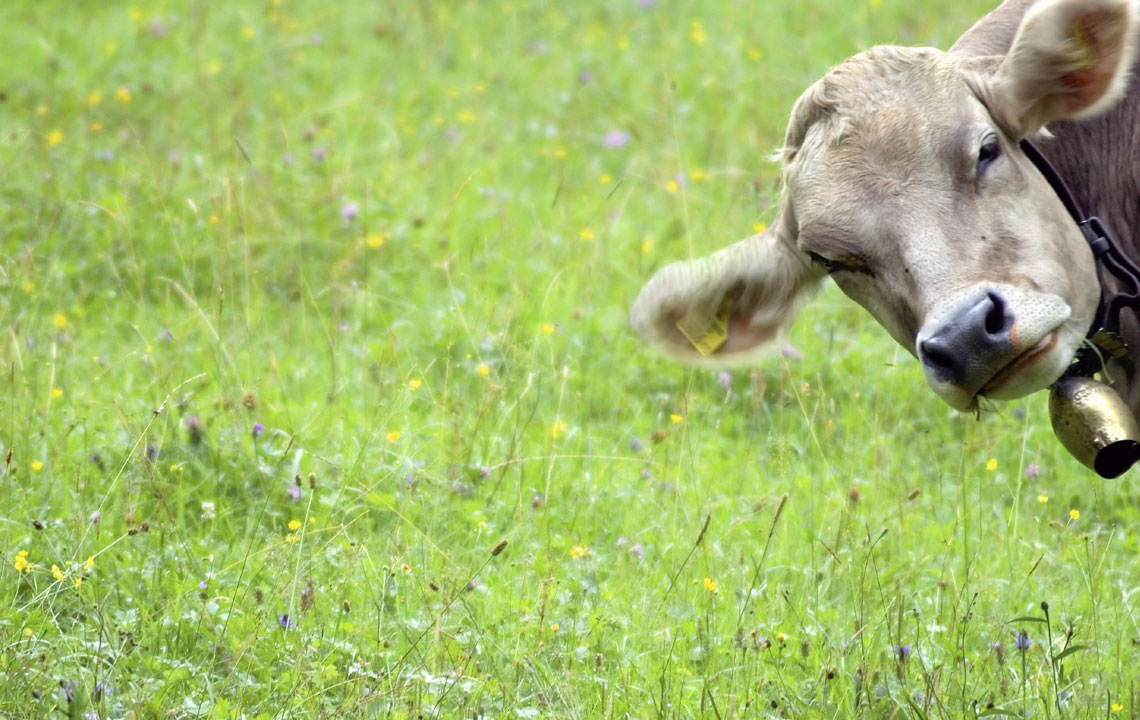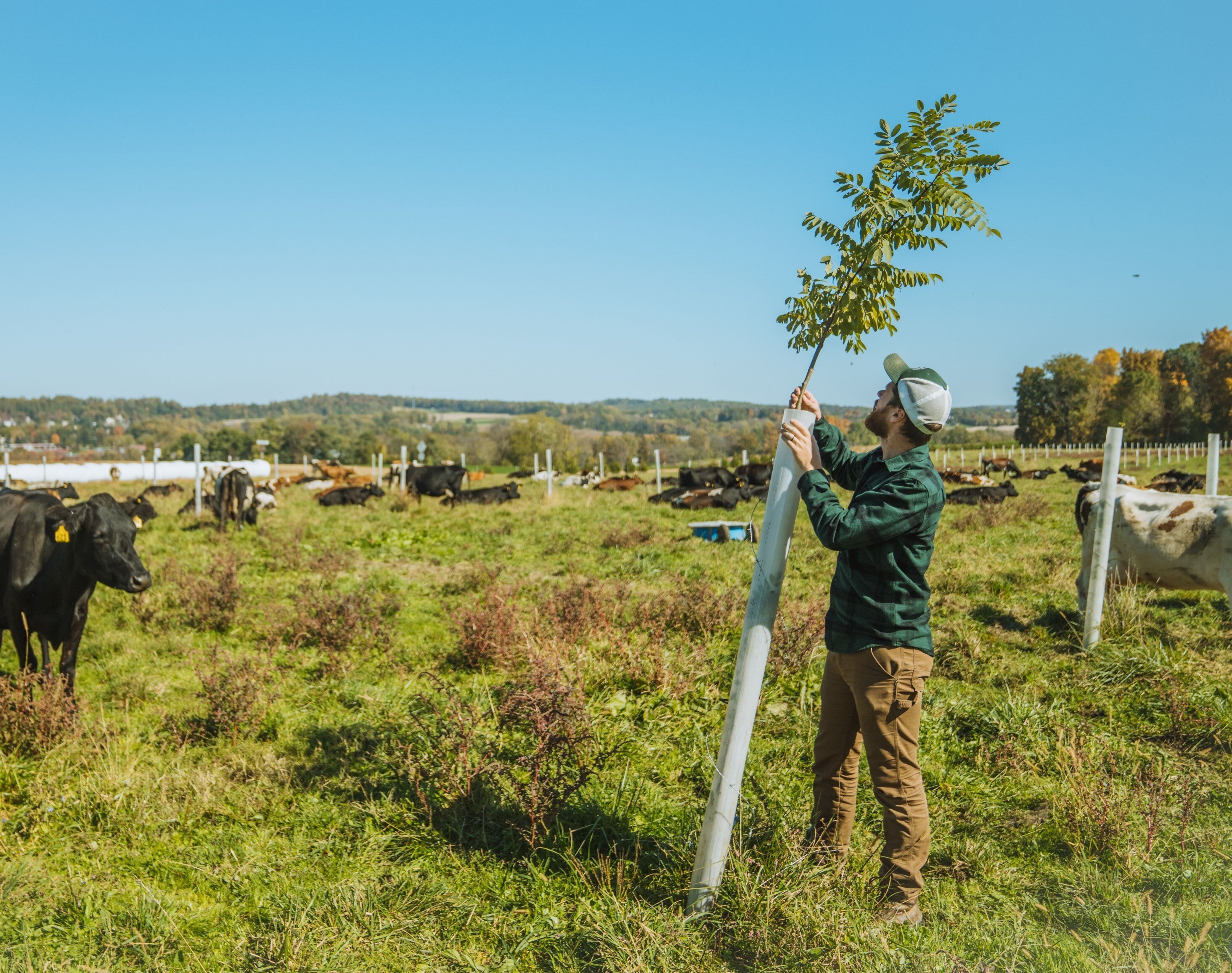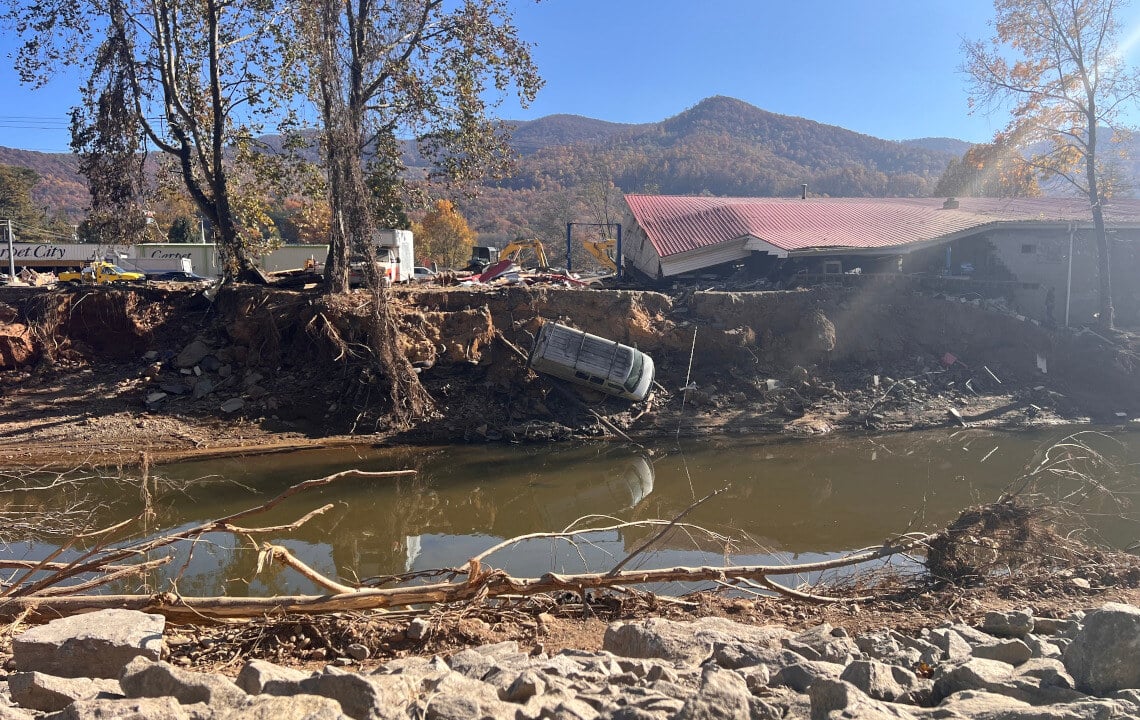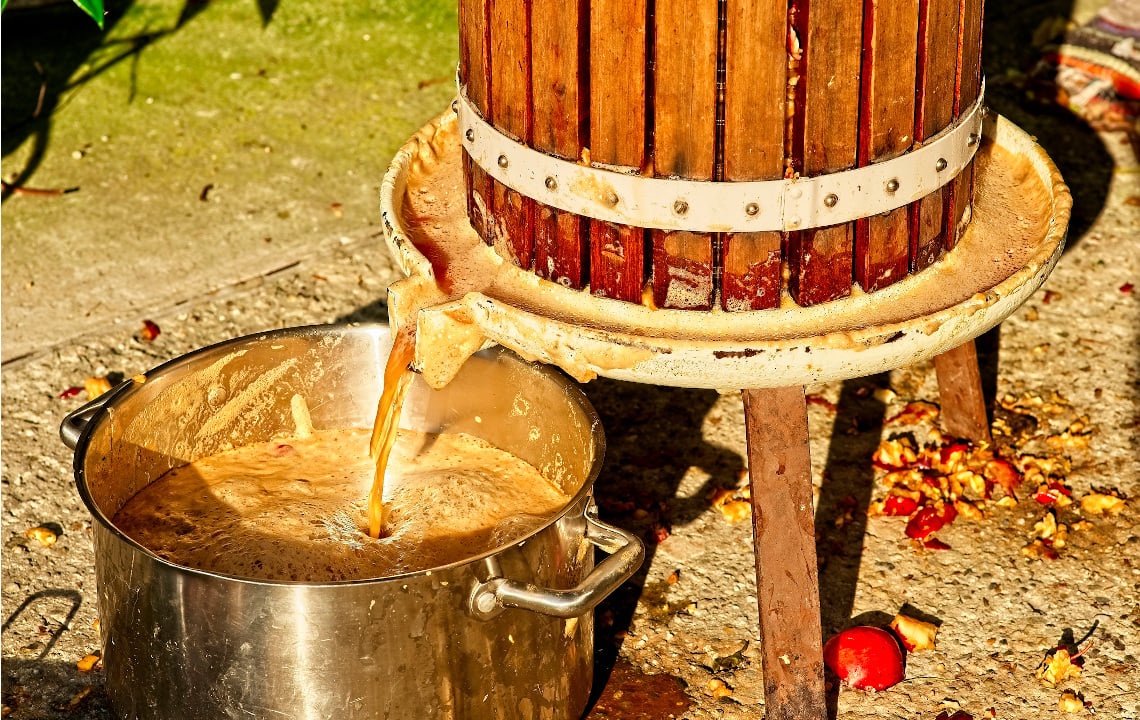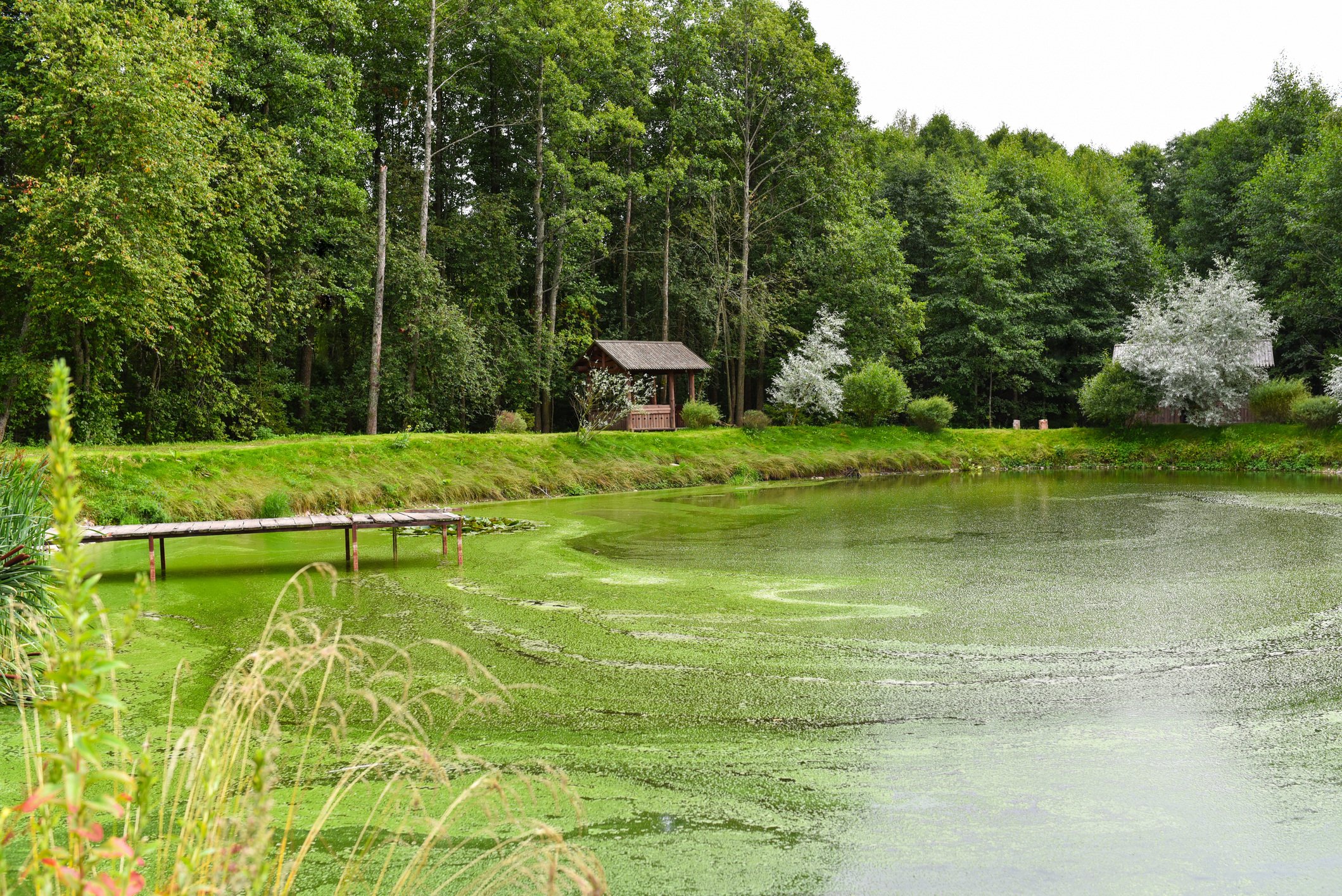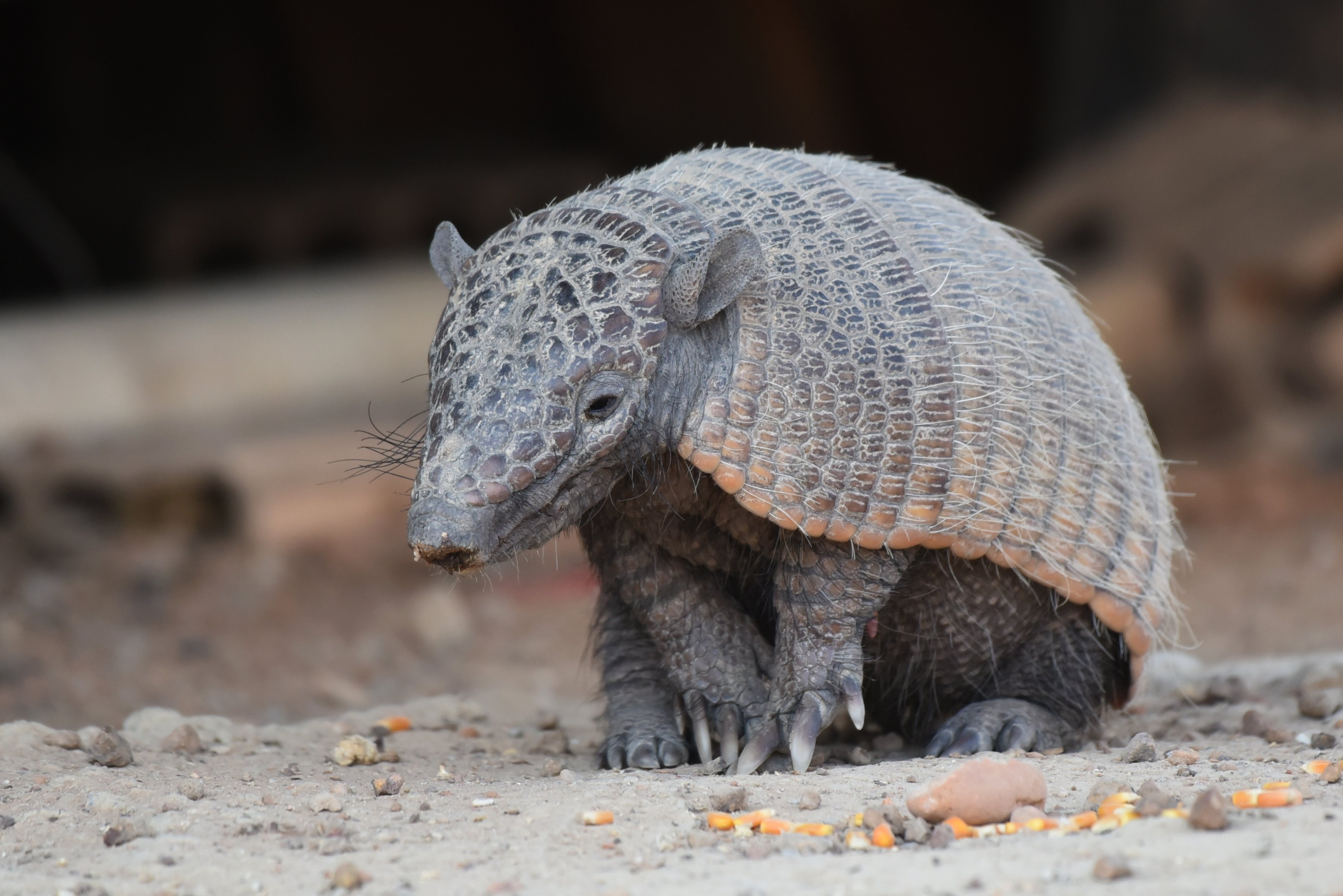Would you give your kids raw milk?
It may sound like a bizarre question.
But if you’re thinking of moving to the country, it’s likely you will encounter hobby dairy farmers, try your hand at raising cows or goats for milk yourself, or wish to reduce your carbon footprint by joining a CSA.
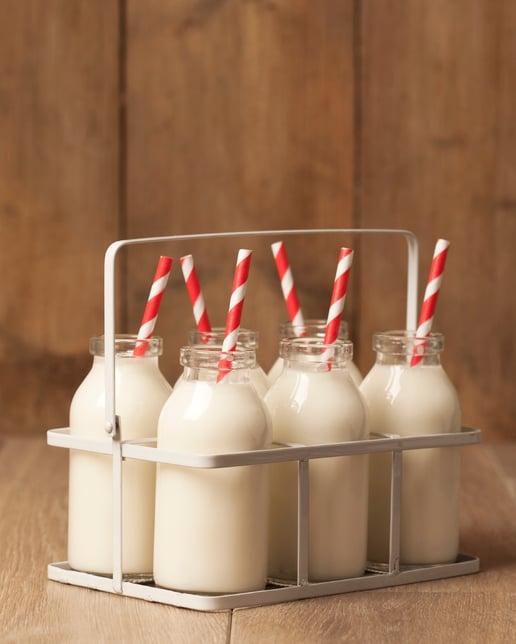 Now, you may be thinking…
Now, you may be thinking…
Isn’t raw milk illegal?
It could make us sick!
Why on earth would I give my kids raw milk when I can buy perfectly good pasteurized milk at the grocery store?
These are all perfectly valid concerns…but what if I told you the following:
- Raw milk has been studied and is believed to play a protective role in preventing many common childhood diseases.
- Raw, unadulterated milk from pasture-raised cows contains innate microbial factors that can actually prevent you from getting sick.
- Raw milk can often be consumed by those with dairy allergies without a problem.
Aren’t you even a little bit curious?
If so, read on to discover the benefits, studies, and benefit-to-risk factor of one of the world’s most misunderstood superfoods.
Our grandparents drank raw milk…why don’t we?
All milk was raw milk up until around the 1920s-1950s, when pasteurization became standard.
Our grandparents drank it, their parents drank it, and it was given it to newborns and children without a second thought.
There was no debate about which type of dairy was safer or more healthful—you just drank raw, full-fat milk from your own cow or a local farm. No one feared it, it was just the norm.
Coincidently, the 1920s-1950s was about the same time food production began moving off the homestead and into a factory/mass production setting. Pasteurization is credited as being one of the most effective and important public health safety measures ever taken. And considering what happens when cows are crammed into an unnatural environment and fed a grain-based diet laced with hormones and pharmaceuticals, it is a darn good thing pasteurization came along when it did.
Personally, I would never EVER drink raw milk from animals raised on a confined, mainstream dairy farm. However, pasteurization isn’t without its drawbacks.
As any scientist will tell you, when food is heated or cooked, especially at high temperatures, its nutrient profile is altered. Most notably in the case of milk, its naturally-occurring enzymes and probiotics are destroyed.
Think about that for a minute.
Enzymes are the catalysts within any plant or animal-based food that facilitate its digestion, while probiotics serve to protect us from pathogens present in food and build our long-term immunity. Our ancestors didn’t have the problems with lactose intolerance or milk allergies we have today…but our ancestors didn’t eat food from animals raised on confined factory farms either.
The cold creamy facts: Studies on raw milk’s role in reducing childhood disease and dairy allergies
Just Google “raw milk and children’s health” and you’ll come across scads of testimonials from parents on the seemingly miraculous healing powers of raw milk for asthma, allergies, and immunity.
That may be enough for some people.
But for a topic as controversial as this, would you give your kids raw milk? I think cold hard facts from published studies are the order of the day. One of the most convincing studies I came across comes from the Journal of Allergy and Clinical Immunology.
Researchers from Indiana, Switzerland, and Germany ran surveys and tests on Swiss and US Amish children aged 6-12 years.
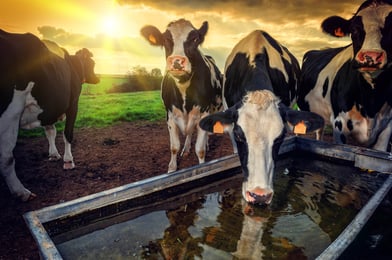 Amish children were selected because they have a superior immune response and significantly less allergies and asthma compared to city children.
Amish children were selected because they have a superior immune response and significantly less allergies and asthma compared to city children.
The 2012 study attributes the children's stellar health and absence of modern childhood disease to exposure to farm animals, living within larger families (more shared germs), and regular consumption of raw milk.
It is believed the raw milk provides beneficial bacteria, nutrients, and pathogens—all of which contribute to the children’s greater respiratory and immune health.
The next study was done in rural Poland. Its finding also suggests consumption of raw or “farm milk” contributes to lower incidents of allergies, asthma, atrophy and related conditions among children and adults.
A third study, entitled “Absence of Homogenization may Explain the Health Benefits of Raw Milk," explains how the process of homogenization denatures milk fat’s structure, making it harder to digest and therefore more allergenic.
The study suggests that while raw milk is far less allergenic, it may be the process of homogenization, and not necessarily pasteurization, that actually causes an allergic reaction.
So if I’m lactose intolerant, wouldn’t un-homogenized, pasteurized milk offer the best of both worlds?
Proponents of raw milk, such as the Weston A. Price Foundation, state that if raw milk isn’t an option, un-homogenized, organic, pasture-raised, preferably cultured milk (phew, that’s a mouthful!), is your next best choice.
Keep in mind (as mentioned above), pasteurization does kill all the enzymes and probiotics inherent in milk, making it less nutritious and more difficult to digest.
How can I find safe, quality raw milk?
For a list of farms in your area visit: http://www.realmilk.com/real-milk-finder.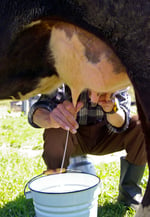
As a super-protective parent, myself, I recommend scoping out the dairy farm yourself and asking a bunch of questions, such as:
- Does the farmer and his/her family drink the milk?
- What do they feed their cows? (You want cows raised on pasture. Grass, not grain, is their natural diet and is what keeps them, and their milk, healthy.)
- How do they keep the milking area sanitized and clean?
- Do they hand-milk or use a machine? (A machine is generally more sanitary.)
- Do they medicate their cows? If so, how soon after medication are they put back into the milking rotation, if at all?
- How fresh is the milk and how long does it last in refrigeration?
If you can’t visit the farm, at least call them up, ask the questions, and see if they’ll give you some customer names to call for reference.
The diet of the cow, how they are treated when they get sick, and the sanitary conditions of the milking area are key.
Bear in mind, most states only allow the sale of raw milk as pet food, so the farmer will be mindful of her language when speaking with you about the product. But if anything seems off, if they aren’t forthcoming, or balk at your questions…keep looking.
What are the risks?
By now you’re probably at least intrigued and maybe even excited to try out raw (or at least unhomogenized, pasture-raised) milk. But you should know, as with any processed or unprocessed food products, there are risks.
Though milk (pasteurized or unpasteurized) is rarely a cause of food poisoning, if a cow is sick, a farm is unsanitary, or milk goes off, you can get very sick and even die from food-borne illness such as E.coli.
To fully understand the real and unreal risks, I recommend reading from both sides of the raw milk debate.
Check out the Center for Disease Control's stance on raw milk, then read this Rebuttal to the FDAs Position on Raw Milk, and then YOU decide if you think the benefits outweigh the risks for your family.
With regards to legality, with the exception of Louisiana, raw milk sales are legal in all Southern states, so long as they are sold for pet consumption or under a “cow share” program. Visit: realmilk.com/state-updates for a state-by-state map of raw milk laws.
So, back to the original question…would you give your kids raw milk? How about unhomogenized milk?
Tell us your opinion, your experiences, your fears, and testimonials (we want to hear it ALL) in the comments section below.
Are you dreaming of getting back to a healthier lifestyle on your own country land? View rural land for sale throughout the South, in Florida, Georgia and Texas on Rethink:Rural's parent company's website, RaydientPlaces.com.


